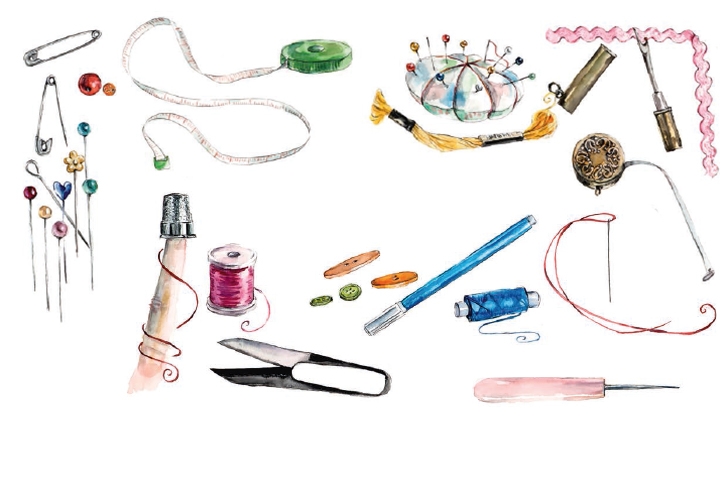The intern stood up from his desk and the button popped off his trousers. He walked over to me and asked what he should do. I suggested he stitch it back on. He said he didn’t know how, so I offered to do it for him – but he declined. Instead, he spent the whole day walking round the office with a paperclip holding his trousers up. The next day he came in and told us he had bought a new pair.
Had nobody taught this young man to sew on a button? It’s the sort of simple task that everyone should know how to do. It takes 20 minutes to learn, yet it is knowledge that will last a lifetime. So why not arm young people with as much information like this as possible? How to cook lunch. How to wash clothes. How to iron. These were once seen as feminine activities. But times have changed, and there’s no reason why everyone shouldn’t be taught them. Girls should know how to build fires and boys should know how to repair their clothes.
So teach skills like these, but under no circumstances examine them. There is no need for anyone to answer an exam paper on boiling an egg — just demonstrate how to do it and leave it at that. Not everyone will remember the precise details, but what will hopefully be retained is a sense that cooking isn’t a herculean task.
In 2013 the Department for Education announ-ced plans to make practical cookery compulsory, and children are now given lessons up to Year 9. The purpose is to ‘instil a love of cooking’ in pupils, although the scheme has been criticised by Jamie Oliver — never quiet on such matters — who claims it ‘just teaches children how to make fairy cakes’. There is a world beyond fairy cakes, of course, but it’s not a terrible place to start.

Schools can’t be expected to bear the full brunt of ensuring that practical skills are passed on, though. Parents also have a role to play. Fortunately, cooking is now very much in vogue, and a multitude of cookery programmes can provide exhausted parents with some inspiration. Shows such as MasterChef and The Great British Bake Off have given kitchen chores a more fashionable image. The internet also contains a wealth of ‘life hack’ guides. Parents worried about their own competence with basic tasks can turn to YouTube or Pinterest for useful (and discreet) advice.
At the same time, however, a certain snootiness has crept into the school curriculum. Modern subjects such as computer coding are prioritised and old ones are rebranded to make them sound more progressive. Cookery is often referred to as ‘food technology’. This makes it sound more like a course in designing microwave meals than advice in cooking to keep oneself alive. Sewing is no longer just sewing. It must be taught in the ‘context of the fashion industry’. But while not everyone wants to become a fashion designer — and nor should they be encouraged to — most people will benefit from a few lessons with a needle and thread.
So where have all these food technology classes left us? One recent study showed that my generation of twentysomethings are so ‘preoccupied by the visual presentation of food’ that we fail to plan meals, and instead buy too much food and end up throwing much of it away. We use technology to take photos of food and share them online but we don’t know how to cook it properly. Apps allow us to outsource many tasks, so many people no longer bother to learn how to do them in the first place.
The great irony, of course, is that technology progresses so quickly that no school syllabus can keep up. Children being taught to code nowadays will undoubtedly find that, by the time they reach the job market, their skills are out of date, or even redundant. It may well be that a more classical education peppered with practical, old-fashioned advice is of far more value than a curriculum that tries to play catch-up with Silicon Valley.
Simple advice deserves to be held in higher esteem. It may not help you get into university, but it will definitely always stand you in good stead. Our food may now be grown in faraway fields, our clothes stitched in faraway factories and our phone has become our valet. But there is no harm in knowing how to polish shoes or stitch up a hem. Rather than throwing away a perfectly good pair of trousers, they can be repaired — with dignity still intact.







Comments